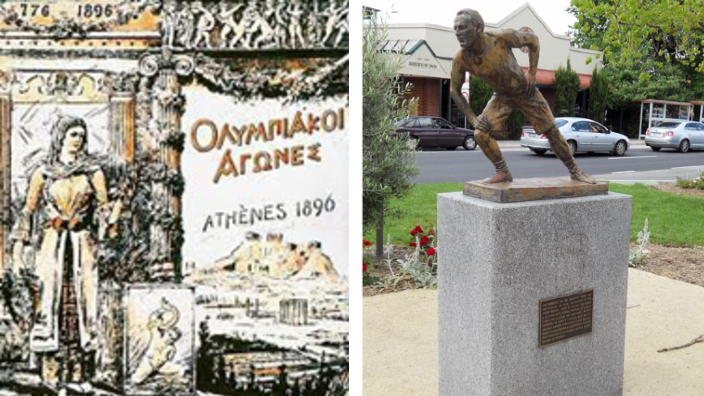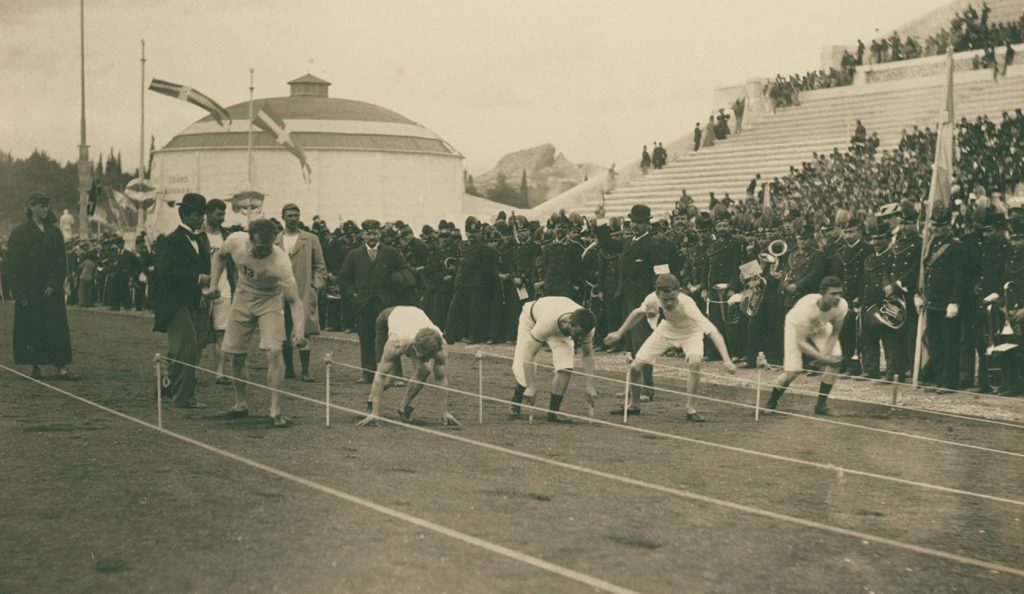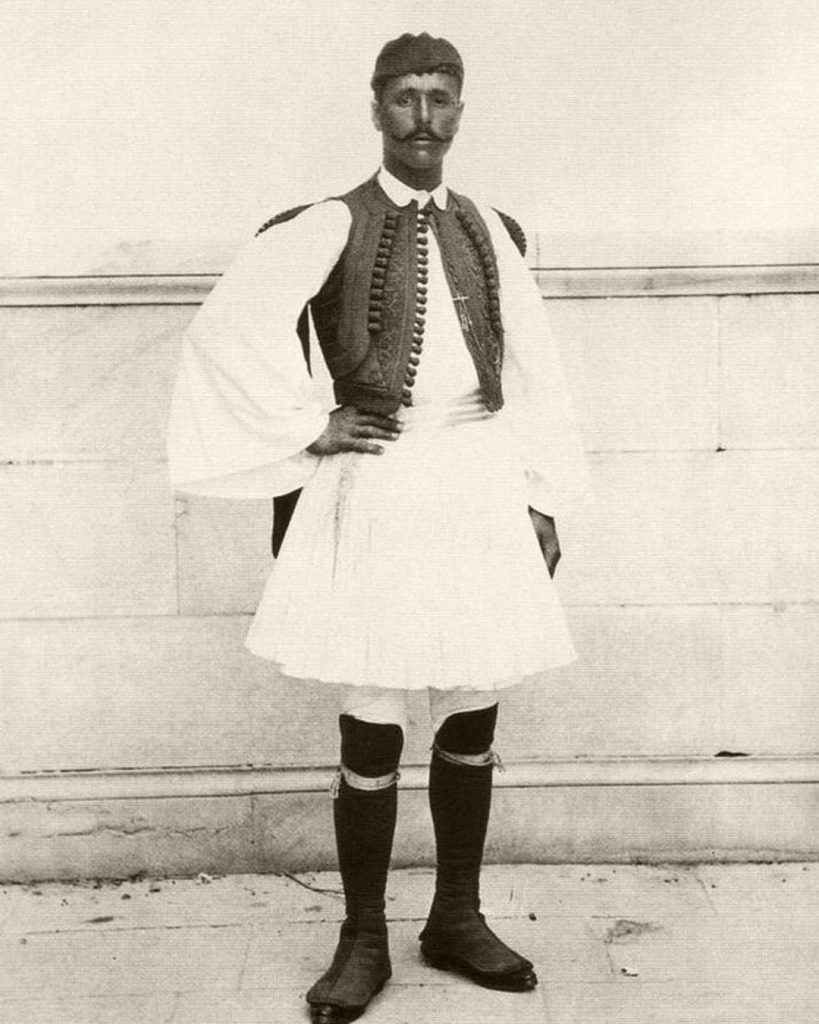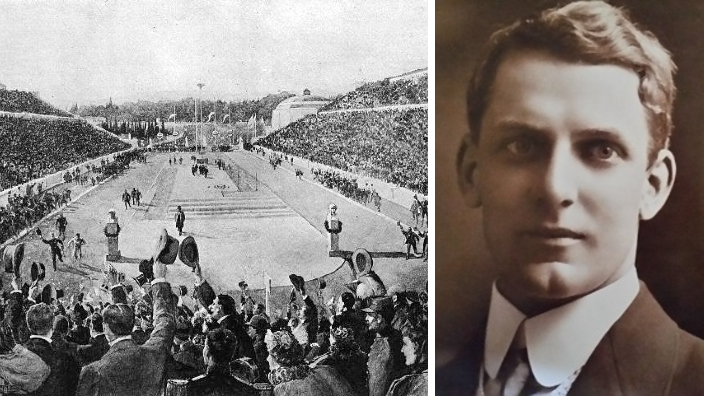Dr John N. Yiannakis OAM.
With the COVID affected 2020 Tokyo Olympics finally upon us it seems an appropriate time to consider again the athlete who first established the Australia-Greece-Olympic link: Edwin Harold Flack. As a result of his participation in 1896, Australia is one of only five countries to have taken part in all the Games of the modern era (admittedly with partial participation and under the Olympic Flag at the 1980 Moscow Games). At the 1896 Olympics only 14 nations were represented.
However, Australia had yet to federate. Flack claimed to represent an Australia that didn’t exist as a nation state. There was no Australian flag, and he would compete in the colours of his school, Melbourne Grammar.
For Greece, the 1896 Athens Olympics was a matter of national pride and an opportunity to strengthen in the global consciousness the link between the ancient Hellenes and the emerging modern Greek state. Furthermore, 1896 was a year of additional note for modern Greece. The opening of the games deliberately coincided with Greece’s National Day and the 75th anniversary of the outbreak of the War of Independence, remembering that Greece didn’t convert to the modern calendar till 1923 (Julian Calendar: March 25 to 3 April; Gregorian Calendar; 6 to 15 April 1896).

Edwin Flack was 22 when the Games were revived. Born in London, the son of an accountant who had emigrated to Melbourne when Edwin was a year old, he was raised in South Yarra. At school Flack showed early promise as a long-distance runner. He won prizes for cross-country running in Victoria, New South Wales and New Zealand. He was also an accomplished tennis player.
Sent to London to further his training as an accountant, Flack was granted leave in 1896 to take an Easter vacation. So, he made his way to Athens. “He was a freelance athlete; no Australian body had promoted his attendance at the Games; he carried no national accreditation; and his nationality was that of a British subject resident in the colony of Victoria. Nevertheless, he entered the contest as an ‘Australian’. He was not only the sole competitor from Australia, but he was also the only one from the southern hemisphere.” Contrast that one competitor with the 470 member Australian team attending this year’s games.
Flack’s first appearance was in the heats of the 800 metres. The next day he made his second appearance, in the 1500 metres race, a final without heats, between eight contestants. Flack won, covering the distance in 4 minutes 35.5 seconds. His victory caused consternation among Greek officials, for no Australian flag was at hand; indeed, none existed (being five years before Australia’s federation). Either in error or desperation, officials hoisted the Austrian flag, causing immediate protests. Shortly afterwards the Union Jack was accepted.

In the 800 metres final there were only three runners: Flack, a Hungarian and a Greek. Flack finished first in 2 minutes 1 second.
On the fifth day, the Marathon race was run. Prayers had been offered that day in many Greek churches for a Greek victory in this race, which followed the route taken 2,500 years earlier by the messenger Pheidippides, who had run from Marathon to Athens to announce the Athenian victory at the Battle of Marathon and then, supposedly, dropped dead.
The Frenchman Lermusiaux set a blistering pace from the start, while Flack stayed back with a pack of Greek runners, but after 10 kilometres Flack moved up to second place. The Frenchman’s early effort had exhausted not only himself but also Flack, whose legs began to wobble. By the 34th kilometre Flack had lost almost all sensation in his legs when the Greek runner, and former water carrier and future policeman, Spyridon Louis (Σπύρος Λούης) passed him, running strongly. Flack staggered on, but at the 37th kilometre his legs finally buckled. He was taken to an ambulance carriage.

In the stadium it was rumoured that the Australian was arriving first. Complete silence reigned. Then the starter of the race, covered in dust from his long ride on horseback, entered the stadium and, going direct to the royal thrones, announced that Louis was in the lead. The news spreads like wildfire and an immense cheer erupted from the crowd.
Louis had run the distance in 2 hours and 58 minutes. He was mobbed by wildly enthusiastic compatriots. A Greek, Kharilaos Vasilakos, took out second place.
A few days later, Flack left Athens and returned to London to resume his accountancy studies. He gave up competitive running and returned to Melbourne the following year.
In Greek sporting circles Flack became well known. He was respected for his two victories, but it was his failed challenge in the last three kilometres allowing a Greek victory in the race that mattered most that won him the affection of the Greek people.
References:
H. Gilchrist, Australians and Greeks, Vol. 1., Sydney, 1992.
https://en.wikipedia.org/wiki/Edwin_Flack.
https://en.wikipedia.org/wiki/Spyridon_Louis.


